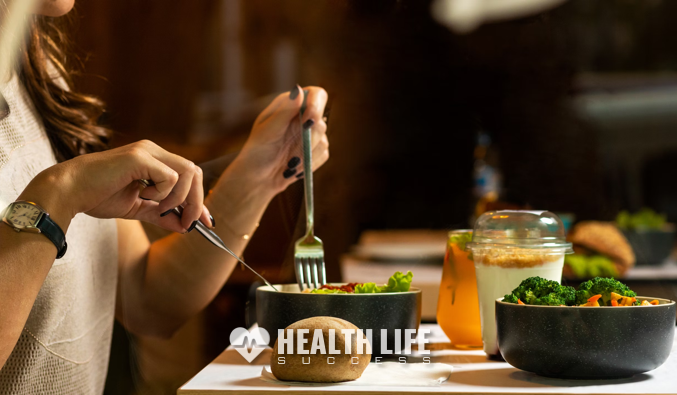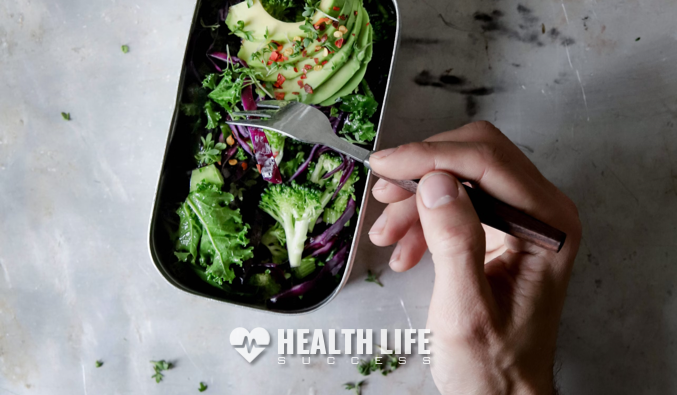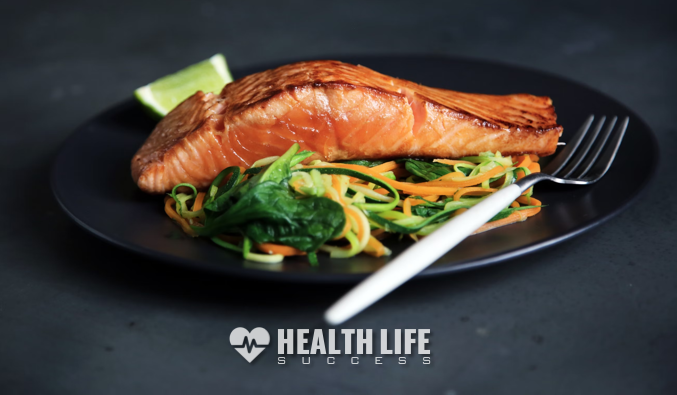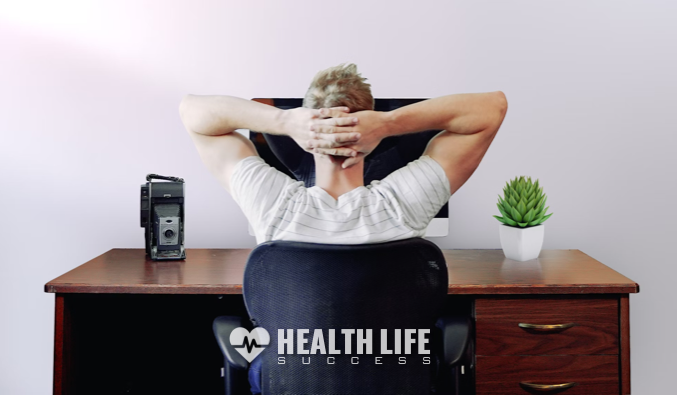What is the 1000 calorie diet?

Intro
Are you considering trying the 1000 calorie diet but unsure of what it entails? In this blog post, we will explore what the 1000 calorie diet is, who should consider it, the potential benefits and risks, how to implement it safely, a sample diet plan, and alternatives to consider.
Understanding the Basics of the 1000 Calorie Diet
The 1000 calorie diet falls under the category of low-calorie diets, setting a daily intake limit of 1000 calories or fewer. This dietary approach is aimed at drastically reducing the amount of calories consumed to prompt the body to use stored fat as a source of energy, which can lead to weight loss. It necessitates a carefully selected menu to ensure that, despite the reduced calorie count, individuals still ingest vital nutrients needed for healthy functioning. This plan typically emphasizes a mix of lean protein sources, ample fruits and vegetables, and whole grains. Each of these food groups provides essential nutrients such as vitamins, minerals, fiber, and protein, which are crucial for maintaining health while on a significantly restricted calorie regimen.
Implementing this diet requires meticulous planning to ensure that the limited caloric intake still covers a broad spectrum of necessary nutrients to prevent deficiencies and support overall health. The focus is on maximizing nutritional value per calorie consumed. For example, lean proteins like chicken, fish, and legumes are chosen for their high nutrient density and ability to provide satiety without excessive calories. Fruits and vegetables are key for their fiber, vitamins, and minerals, which support digestion, immune function, and more. Whole grains contribute important dietary fiber and other nutrients, such as B vitamins, which are essential for energy metabolism.
This strategic approach to selecting foods ensures that every calorie on the 1000 calorie diet is packed with nutritional value, supporting the body’s needs while still promoting weight loss through calorie restriction. However, due to its stringent nature, this diet requires careful consideration and planning to implement effectively and safely.
Who Should Consider the 1000 Calorie Diet?

The 1000 calorie diet is specifically designed for certain individuals under professional guidance and should not be embarked upon without medical advice. Ideal candidates for this diet include those who have a significant amount of weight to lose and for whom rapid weight loss has been deemed medically necessary. Often, this dietary plan is recommended for people who are facing health issues directly linked to obesity or who must reduce their weight quickly to safely undergo surgical procedures.
It is also pertinent for individuals who have struggled with other weight loss methods without success, indicating the need for a more structured and drastic approach under close supervision. However, it’s crucial to underline that this diet is not a one-size-fits-all solution. People with a relatively low body mass index (BMI), those who are pregnant or breastfeeding, or individuals with certain health conditions such as diabetes or cardiovascular diseases, generally are not suitable candidates for such an extreme calorie restriction.
Before considering this diet, thorough evaluations including physical exams, and possibly, metabolic testing are advised to ensure that it won’t adversely affect one’s health. It’s also important for individuals to have access to ongoing support and monitoring by healthcare professionals to make adjustments as needed and address any potential health concerns that may arise during the diet.
Entry into the 1000 calorie diet should come with the understanding that while it may offer quick weight loss results, it is also a temporary and not a long-term solution for weight management. Transitioning to a more sustainable diet and lifestyle changes under professional guidance is critical once the 1000 calorie diet phase is completed to maintain health and prevent weight regain.
Potential Benefits of Following a 1000 Calorie Diet

Embarking on a 1000 calorie diet can yield significant weight loss outcomes, a result that not only transforms physical appearance but also enhances overall health. For individuals battling obesity or those at risk of obesity-related conditions such as Type 2 diabetes, heart diseases, and certain forms of cancer, this diet presents a rigorous but effective strategy to mitigate these risks. The swift reduction in weight that results from such a calorie-restricted regimen can markedly improve blood pressure, cholesterol levels, and glucose metabolism, offering a potential pathway to reducing reliance on medications for managing these conditions.
Another notable benefit of this diet is the potential improvement in insulin sensitivity. By consuming fewer calories, the body may become more adept at utilizing insulin, thereby aiding individuals with insulin resistance or pre-diabetes in better managing their blood sugar levels. This diet also encourages the consumption of nutrient-dense foods. Even though the calorie count is low, the emphasis on high-quality proteins, fruits, vegetables, and whole grains ensures that the body receives a spectrum of essential nutrients. This focus on whole, unprocessed foods can foster healthier eating habits that contribute to long-term health and wellness.
Additionally, the discipline and structure required to adhere to such a restrictive diet can empower individuals with a greater sense of control over their eating habits, potentially laying the groundwork for sustainable, healthy lifestyle choices post-diet. The immediate results often seen with the 1000 calorie diet can also serve as a powerful motivator for individuals to continue their weight loss journey, reinforcing the commitment to a healthier lifestyle beyond the diet’s duration.
Risks and Considerations of a 1000 Calorie Diet

Venturing into the 1000 calorie diet landscape presents several challenges and health risks that must be thoroughly understood before commencing this weight loss journey. A primary concern with such a drastic reduction in daily calorie intake is the potential for nutritional deficiencies. The body requires a wide array of vitamins and minerals to perform critical functions, and a severely restricted diet may not provide adequate amounts of these essential nutrients. This imbalance can lead to weakened immunity, deteriorated bone health, and impaired cognitive function over time.
Another significant risk associated with the 1000 calorie diet is the loss of lean muscle mass. When the body is deprived of sufficient calories, it may start to break down muscle tissue for energy, leading to muscle wastage. This loss of muscle mass can negatively impact strength, reduce metabolic rate, and make it harder to maintain weight loss in the long term.
Furthermore, engaging in such a low-calorie diet can trigger extreme fatigue and lethargy. The body’s energy levels are closely tied to caloric intake, and a sudden drop can result in a lack of energy, making daily activities and exercise more challenging. This fatigue can hinder an individual’s ability to remain physically active, a key component of healthy weight loss and overall well-being.
Lastly, embarking on the 1000 calorie diet without proper guidance and support may cultivate an unhealthy relationship with food. The stringent calorie restriction could lead to feelings of deprivation, causing binge eating episodes or the development of disordered eating patterns. Such behaviors can have long-lasting effects on mental health and body image.
Careful consideration and professional guidance are paramount when evaluating the 1000 calorie diet as a weight loss strategy to mitigate these risks and ensure a healthy, balanced approach to achieving weight loss goals.
How to Implement the 1000 Calorie Diet Safely

Embarking on a 1000 calorie diet without compromising your health requires thoughtful preparation and professional oversight. The first step is consulting with a healthcare provider or a registered dietitian to determine if this diet is appropriate for your health status and weight loss goals. They can offer tailored advice and construct a meal plan that ensures you receive a balanced intake of nutrients despite the low calorie count.
Incorporating a wide variety of nutrient-dense foods is crucial for maintaining energy levels and preventing nutritional deficiencies. Focus on including lean proteins, fiber-rich fruits and vegetables, and whole grains to create well-rounded meals. Portion control plays a significant role in this diet; therefore, understanding serving sizes and using them to guide meal preparation is essential.
Monitoring your progress with the guidance of a professional is also important. Regular check-ins can help adjust the meal plan as necessary to address any nutritional gaps or health concerns that arise. Additionally, these professionals can provide strategies to manage hunger and cravings, ensuring you stay on track without feeling deprived.
Engaging in light to moderate physical activity, as recommended by a healthcare provider, can complement the diet and aid in overall wellness. However, it’s important to adjust activity levels based on energy intake to avoid overexertion.
Finally, mental and emotional support is vital. Whether it’s from a professional, friends, or a support group, having a network to share experiences and challenges can make the diet more manageable and help sustain motivation over time. Remember, the goal is not just weight loss but also nurturing a healthier relationship with food and your body.
Sample 1000 Calorie Diet Plan

Crafting a 1000 calorie diet plan requires careful selection of foods to maximize nutrient intake while adhering to the calorie limit. Here is an example of what a day on a 1000 calorie diet might look like:
**Breakfast (250 calories):** Begin your day with a nutritious meal of half a cup of cooked oatmeal (150 calories) topped with a quarter cup of fresh blueberries (20 calories) and a teaspoon of almond slivers (30 calories). Accompany this with a cup of black coffee or herbal tea (optional, calories negligible).
**Mid-Morning Snack (100 calories):** Enjoy a mid-morning snack of one medium-sized apple to keep hunger at bay and provide a source of fiber and vitamins.
**Lunch (300 calories):** For lunch, prepare a salad with two cups of mixed greens (20 calories) topped with half a cup of cherry tomatoes (15 calories), half a cup of sliced cucumbers (8 calories), three ounces of grilled chicken breast (140 calories), and a tablespoon of balsamic vinegar dressing (30 calories). Add a quarter cup of cooked quinoa (75 calories) for a wholesome grain.
**Afternoon Snack (50 calories):** A snack of one large celery stalk with one tablespoon of hummus provides crunch and protein, keeping you satisfied until dinner.
**Dinner (300 calories):** Dinner could consist of four ounces of baked salmon (180 calories) with a side of one cup of steamed broccoli (55 calories) and half a cup of steamed carrots (45 calories), seasoned with herbs and a teaspoon of olive oil (20 calories).
This plan emphasizes the importance of whole, unprocessed foods rich in nutrients. It includes lean protein to help maintain muscle mass, whole grains and vegetables for fiber, and healthy fats from sources like almonds and olive oil. While the 1000 calorie diet is restrictive, this sample plan shows how to distribute calories across meals and snacks to support nutritional needs within the calorie limit.
Alternatives to the 1000 Calorie Diet

For individuals for whom the 1000 calorie diet seems too restrictive or impractical, there are several viable alternatives that promote weight loss while also emphasizing health and sustainability. Opting for a balanced, calorie-controlled diet that allows for a more gradual weight loss can be beneficial. This approach often involves reducing daily calorie intake by a smaller amount, such as 500 calories less than your maintenance level, which can lead to a steady loss of 1 pound per week.
Incorporating regular physical activity into your routine is another effective strategy. Exercise not only burns calories but also builds muscle mass, which can increase your metabolic rate over time. A combination of cardiovascular exercises, such as walking, cycling, or swimming, with strength training exercises is most beneficial for overall health and weight management.
Consulting with a healthcare professional or joining a structured weight loss program can provide personalized guidance and support. These resources can help tailor a diet and exercise plan to your specific needs, preferences, and medical history, ensuring a balanced approach to weight loss.
Mindful eating practices and behavior modification techniques can also play a crucial role in managing weight. Learning to listen to your body’s hunger and fullness signals, making conscious food choices, and addressing emotional eating habits can lead to long-term success in weight management.
Choosing an approach that fits your lifestyle, preferences, and health status is essential. A plan that feels manageable and sustainable is more likely to result in long-term success and improved overall well-being.


